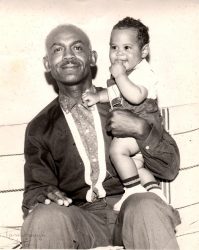Innocent Until Proven Guilty? Not For Everyone…
Posted by Mitch Mitchell on Jun 30, 2020
Many years ago I was at dinner out of town with a few other consultants I was working with. Somehow the conversation came around to 3 high profile court cases that were being talked about at the time in California: O.J. Simpson, Michael Jackson, and Robert Blake, the latter two going through current cases at the time, as Simpson's had ended in 1995.
 |
The two ladies, both white, were emphatic in believing the guilt of all of them. They both also said that they believe the U.S. system of law should be that people are guilty if arrested, and it should be up to the arrested person to prove their innocence. The one other male, Latino, didn't want to offer an opinion at all, except to say he could see it both ways.
I, being the black male, felt that each person was absolutely innocent based on shoddy evidence, the way the police did their investigation, and of course some of the witnesses brought in by the prosecution. I also stated that the 5th amendment of the Constitution got it right; "innocent until proven guilty".
One wouldn't believe it unless they've thought about it enough, but how one intimates the guilt and innocence of others, sans evidence, isn't necessarily always racial; sometimes it's the background and income of those doing the contemplating. People who are born rich and stay rich usually believe the arrested are always guilty. People who are born poor and always stay poor usually believe the cops are trying to railroad someone. The middle class is usually where things skew more towards race than income.
The middle class is quite diverse, because standards aren't the same everywhere and it depends a lot of where people lived, who they've grown up with, what they see on TV, where they went to school and what their friends and relationships were like. I consider myself as growing up middle class because I certainly didn't grow up rich, but I didn't grow up poor. I lived in many different places because of my dad's military background.
But I did grow up black. Most of the places I've been I stood out (still do) from the crowd because of it. I've been singled out by organizations more than once because of it. I've been stopped by police here and there because of it. And I spent a year living in the ghetto where... well, they didn't like me either. 🙂
The American justice system says a person is presumed innocent until proven guilty. Rarely is it so apparently obvious that someone is guilty that it's a slam dunk case. A lot of evidence usually has to come up to get as close to proving that someone is guilty as they can. If you have money, the evidence has to be that much stronger, the witnesses that much sharper. If you don't, well, you know.
The reality is that an estimated 32% of black males will end up in prison as opposed to 17% Latino and 5.9% white males. For females, 1.7% are black, .7% Latino, and .3% white. And blacks on average stay in prison from 3.5 to 5 years longer than whites convicted of the same charge.
Is everyone guilty? Not even close. Is everyone innocent? Not even close. But it does beg a little more foresight and thought as to how one perceives those who are arrested, tried, and the decisions that are made based on the evidence, and how much money the defendant has to challenge what possibly might be shoddy evidence.
Unfortunately, many times in America it never gets to the courts when it pertains to black and Latino/Hispanic people. For every George Floyd there's a Dylann Roof. For every young person or group like the Central Park Five, there's a Brock Turner. For every George Zimmerman there's a Breonna Taylor, Ahmaud Arbery, Eric Garner, Tamir Rice, Trayvon Martin, Amadou Diallo, Jonny Gammage, Michael Brown... do I need to name more?
In a country that proclaims it's about law and order, it's not about that at all. It's about brutality, comfort and privilege; those who benefit from it, those who are victims of it and those who get away with it. If a black man like Chris Rock, who's wealthy, can keep getting pulled over, I see that as a problem.
When everyone sees these things as a problem, maybe... just maybe, something will change. Unfortunately, I don't think so; I'll close with this video:
https://youtu.be/kvPKa_5p2ck

